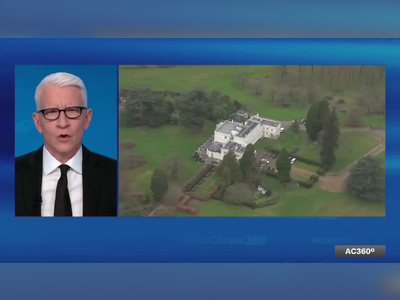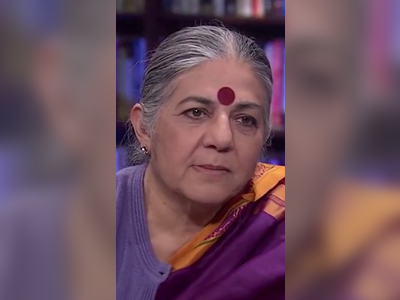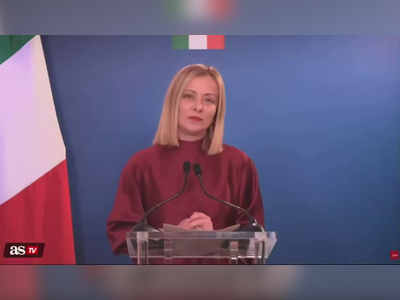
Mothers demand apology over forced adoptions
Up to 250,000 women in Britain were coerced into handing over their babies because they were unmarried.
Many of the women never had more children and say the loss caused them to lead a lifetime of grief.
They want the UK to follow Australia, which in 2013 was the first country to apologise for forced adoptions.
"It was the most shameful thing that could happen," says Jill Killington from Leeds.
She became pregnant in 1967, aged 16, and says being an unmarried mother "was described as a fate worse than death".
She recalls having to stay upstairs at her home to hide her growing tummy, so she was out of sight when anyone visited.
"My mother asked me to wear a wedding ring when I went out. It was a deeply humiliating time," she says.
Veronica Smith became pregnant in 1965 while working as a nurse at a Butlin's Holiday Camp in Bognor Regis in West Sussex.
The chilling reality of her situation hit home when she broke the news to her mother.
"My mother told me if my father found out it would kill him, so I never told him, ever."
Instead, Veronica was secretly sent to a mother and baby home in a part of London not far from her parents' house and she would meet up with her mother on Wimbledon railway station every Saturday.
"She would bring a blank airmail envelope and I would write a letter saying I was in Spain enjoying work and life. She would then take the letter home and show it to my father, who believed I was in Spain."
No goodbye
Lawyers examining the birth mothers' cases have focused on the period between 1945 and 1975 - before a change in adoption law - when around 500,000 babies were adopted in Britain, mostly from mothers who were under 24 and unmarried.
Their research suggests about half of those women faced sustained pressure to give up their babies from professionals, including doctors, midwives, workers in mother and baby homes and adoption staff in religious and council-run homes.
Ann Keen was 17 when she became pregnant in 1966 and recalls a particularly cruel moment during the birth of her son.
"I wasn't given any pain relief," she says. "The midwife said 'you'll remember this, so you won't be wicked again'."
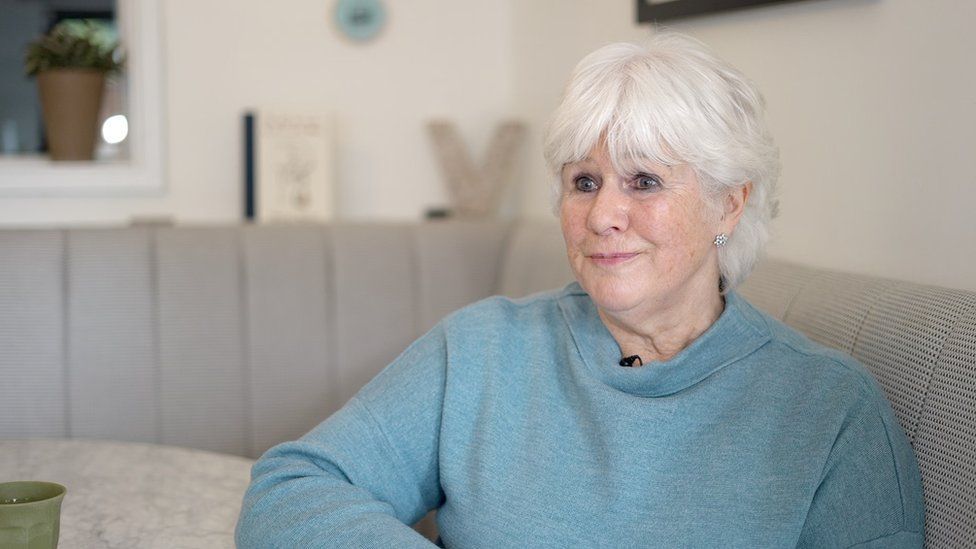
Ann says she wasn't even given the opportunity to say goodbye to her son.
"Eight days after giving birth, I went to the hospital nursery to see him and he wasn't there," she says.
"The midwife told me 'he's gone. He's in that room over there. They'll be happy and that's the last you'll see of him'."
Ann says: "It was coercion. The phrase they used was, 'This is for the best' and 'if you really love your baby, you should give him up'."
'Bullying wore me down'
For Diana Defries, who was 16 when she became pregnant, it was a different kind of trauma.
She says the moment after she gave birth someone in the delivery room announced, "this baby is flagged for adoption and I'll take her away".
"I yelled to bring her back," says Diana. "But the nurse then just walked past me and put my daughter on a table out of my reach. They all then left the room with just me and my crying baby. All I could croak was 'help me, please'.
"At that moment, I remember thinking, it would be better for me to die."
Diana says: "I do feel my social worker used coercion. The bullying wore me down".
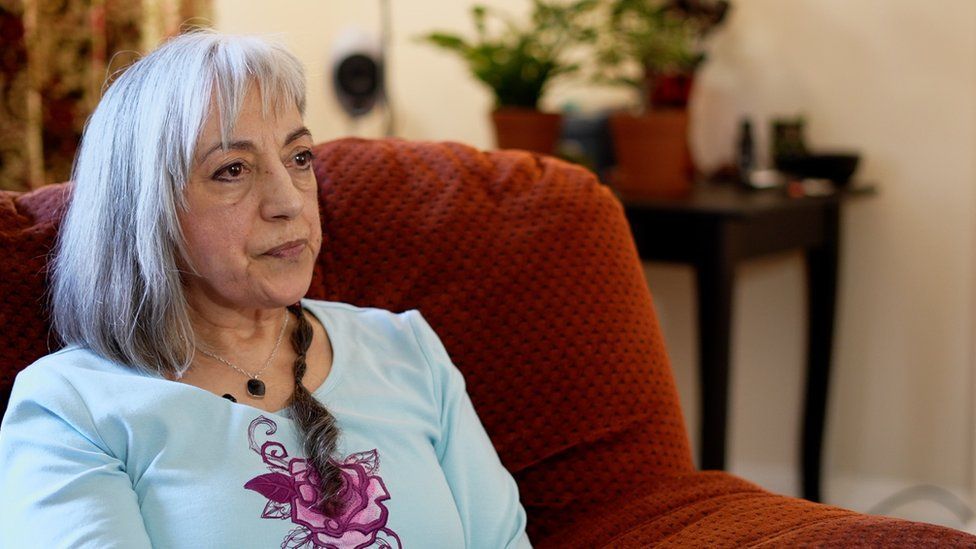
To enable an adoption, the women were supposed to sign consent forms. But some experts have doubts about the legality of some of the consent processes.
Solicitor Carolynn Gallwey, who has acted for the birth mothers, says all of those she has spoken to said they had no choice but to sign the consent form.
She says there is also evidence to show some mothers' forms may have been signed by other people, such as their parents or even their GP.
One document, shown to the BBC by a woman who didn't want to be named, suggests a judge in one of the adoption hearings questioned the authenticity of a signature.
Ms Gallwey said the women were also not told they were entitled to financial help or other kinds of support that might have meant they could have kept their children.
'A piece of me is missing'
Many of the adoptees who were given to new families in forced adoptions have also spoken of their shock at what happened to their birth mothers.
Some of them say it has added to their own sense of loss.
Gaynor Weatherly, whose mother was 16 when she was born in 1963, says: "It's like a piece of me has been missing. It can eat you up."
Gaynor says she has found happiness through her own marriage and children but that she feels "cheated out of a different life".
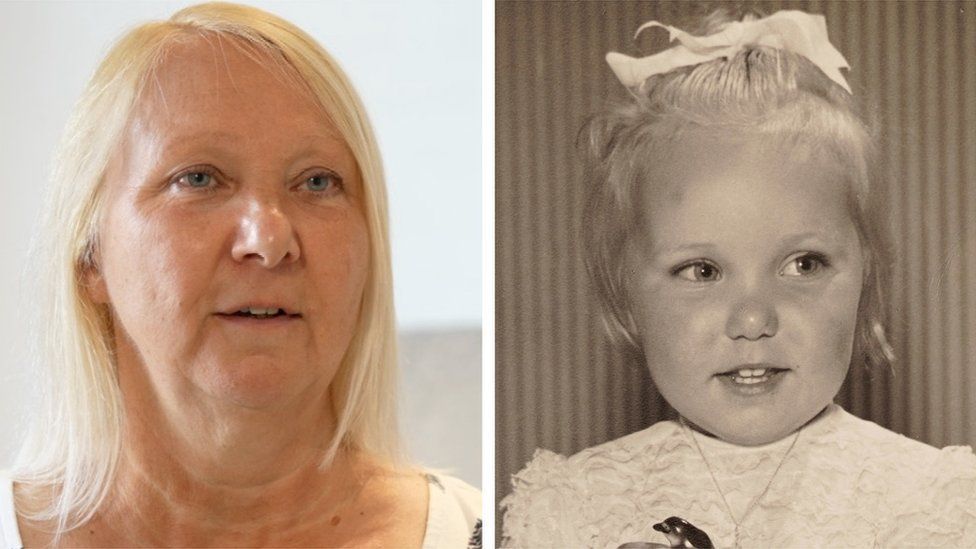
Some of the adoptees were eventually reunited with their birth mothers, but it often took decades.
Rachel Langham, who was born to Veronica Smith, went to live in Canada after she was adopted.
She had a loving relationship with her adoptive parents, but says what happened to Veronica was "inhumane".
"I feel terrible empathy and sorrow for her and someone should apologise," Rachel says.
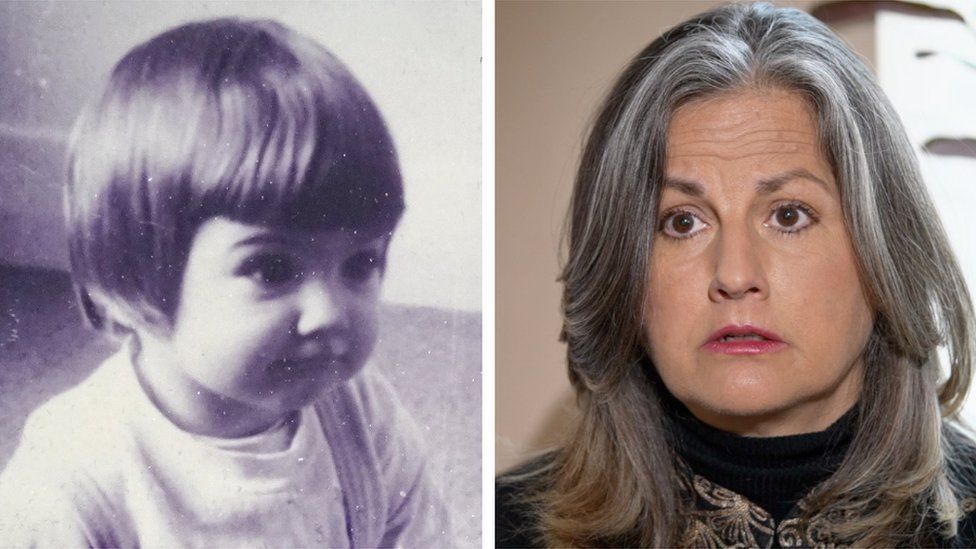
Hundreds of women have now written to Prime Minister Boris Johnson to say they deserve one from the UK government, on behalf of the institutions and individuals who treated them so badly.
Birth mothers in Australia received the world's first government apology in 2013 when Julia Gillard, the prime minister at the time, apologised to around 150,000 women whose babies were taken from them.
And three years ago, the Canadian Senate recommended the federal government issue an apology to 300,000 Canadian women.
In January of this year, the Irish Taoiseach, Micheal Martin, apologised to former residents of mother and baby homes in Ireland for the way they were treated over several decades.
'Time to say sorry'
The women in Britain, most of whom are now in their 70s and 80s, say an apology would bring lasting comfort.
Ann Keen, who went on to become an MP and junior minister, says: "I did not give up my son or abandon him. An apology would clear my name and my son's name. An historical injustice is what happened. It's time to say sorry."
In a statement, Children and Families minister Vicky Ford said: "I want to express my deepest sympathy to all those affected by historic forced adoption. We cannot undo the past, but we can be reassured that our legislation and practices have been significantly strengthened since then."
The 1975 and 1989 Children Acts and the 1976 Adoption Act were among the laws that have made it easier for adopted children and their birth mothers to regain contact with each other.








